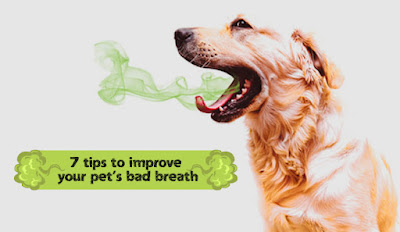Staying along with your pet makes you realize all his crazy stuff, his behavior, his likes, his dislikes, and especially his fragrance, odor, and smell.
A regular brushing routine, oral care, constant habit of maintaining oral hygiene can never lead you to a mint fresh breath of your dog. In reality, any pet or especially even a dog has a breath different from humans – not refreshing but neither pungent.
So, how do you recognize your pet’s normal and usual breath distinct from halitosis?
Practically, a dog’s breath is bearable and similar to its skin odor. But if you ever start to feel a different odor smelling like rot’ feces or an exceptionally strong smell not acceptable to your smelling senses then you must start to protect your dog from halitosis.
What causes bad breath in dogs?
- The most common and persistent problem is plaque and tartar buildup due to the constant ignorance and compromise on oral hygiene.
- Infection in the mouth, gums, or tongue due to any reason and sores.
- Gingivitis is a common problem caused due to ignorance.
- Sometimes if your dog is suffering from sinus it also adds to bad breath.
- A dog suffering from kidney or liver disease also reflects bad oral hygiene.
- One of the major reasons includes old food stuck between the teeth and under the wedged lips.
- Consumption of rotten food, trash, feces, or any dead animal also leads to bad breath.
All these are major reasons; while you might not be able to find the exact reason for the cause but you definitely want to improve your pet’s bad smell to at least a good smell. You can always consult a veterinarian to know the exact reasons and for better solutions. But we have a regular routine regime to keep its bad breath away.
- Often go for dental checkups and professional cleanings. The frequency of the cleanings might vary, but ideally, it should be done at least annually.
- Feed your pet only high-quality food. Avoid overly cooked food and food with fillers. They are difficult to digest and cause digestive trouble leading to bad breath.
- Let them eat plenty of dental chews. They are really helpful in cleaning and scrubbing teeth.
- Brush your pet’s teeth regularly, ideally once a day. Train them well for brushing.
- Use pet-friendly toothpaste.
- Keep all the trash-like items such as feces away from your pet’s consumption reach.
- Check your pet’s mouth regularly for signs of sores, infections, or stuck particles of food.
Bad breath is one of the major problems in pets, also an easiest to overlook. Be aware of your pet’s oral hygiene as part of overall good care. You can be well prepared to prevent not only bad breath but also the more serious underlying problems that start with bad breath and leads to disaster.

No comments:
Post a Comment